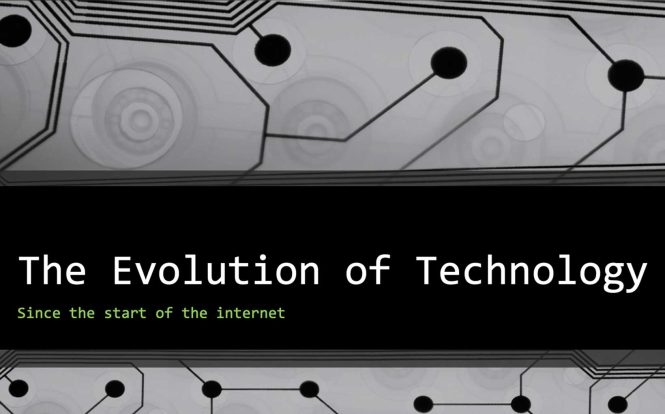

Can technology affect evolution? Absolutely. This article explores the intricate ways in which human-created technology is profoundly altering evolutionary processes, from genetic engineering to artificial selection. We’ll delve into the potential positive and negative ramifications of this new relationship between humans and the natural world. The question of can technology affect evolution is not merely academic, but directly impacts our future. This article will examine the historical context, present challenges, and potential solutions. We will analyze how technology and evolution interact, including case studies, examples, and potential implications, ultimately empowering readers with the knowledge to understand this crucial intersection of science and technology.
The Historical Context: Evolution Before Technology
Early Evolutionary Processes
Evolution, by its very nature, is a gradual process of change driven by environmental pressures and natural selection. For millennia, species adapted to their environments through natural selection and genetic drift. This is a process driven primarily by natural forces, with limited, if any, impact from human activity. Early humans, like all other species, played a part in the environment, but their impact was typically local and limited in scope.
The Advent of Agriculture
The shift towards agriculture, though initially a positive development, also began to alter the selective pressures on plants and animals. By favoring specific traits and selecting for high yield, early humans unknowingly altered the genetic makeup of crops and livestock. This example illustrates the earliest forms of artificial selection, a clear example of how human intervention could affect evolutionary outcomes.
Early Forms of Modification
Even before the advent of genetic engineering technologies, humans have used various techniques to modify the genetics of domesticated plants and animals. This artificial selection gradually shifted the trajectory of natural selection, affecting the evolutionary direction of these species.
Technological Interventions in Modern Evolution
Genetic Engineering
Genetic engineering techniques, particularly CRISPR-Cas9 technology, are rapidly revolutionizing biology. They allow us to manipulate genetic material with unprecedented precision, opening up the possibility of directly intervening in evolutionary processes. This has implications for everything from combating disease to enhancing desirable traits in crops. However, the ethical implications of directly altering the genetic makeup of organisms are substantial.
Artificial Selection: Modern Methods
Modern advancements in agricultural practices and animal breeding techniques allow for highly precise control over traits of interest. This is a clear example of how technology can affect evolution and the genetic makeup of species. The implications of these choices on the wider ecosystem are significant and need continued analysis. There are also concerns about unintended consequences and the loss of genetic diversity through such intensive selection.
Examples of Evolution Affected by Technology
The widespread use of antibiotics has driven the evolution of antibiotic resistance in bacteria, demonstrating a direct correlation between technology and accelerated evolutionary adaptation. Understanding these effects is key to preventing the spread of resistant strains and developing new strategies to combat infections.
The Impact on Biodiversity
Loss of Genetic Diversity
Intensive selective breeding and genetic modification can reduce genetic diversity within populations, making them more vulnerable to disease and environmental changes. This loss of genetic variety can fundamentally alter the trajectory of evolution, making long-term adaptation more difficult. This loss can impact biodiversity and ecosystem stability. Understanding the long-term effects of reducing genetic diversity is crucial to long-term preservation efforts.
Evolution of Resistance
As mentioned previously, the widespread use of antibiotics has led to the evolution of antibiotic-resistant bacteria. This highlights how human actions directly and dramatically accelerate evolution, creating challenging medical problems. Understanding these evolution pathways is essential to maintaining effective treatments.
Ethical Considerations and Future Directions
The Ethics of Genetic Modification
The ability to manipulate genes raises complex ethical questions about the nature of life, human control over evolution, and the potential for unintended consequences. Discussions about the ethical implications must be ongoing to help guide how technology is used in the field.
Responsible Technological Advancement
Future research and development must prioritize a responsible approach, incorporating environmental considerations and ethical guidelines for any intervention in natural selection or evolution. Ongoing monitoring and assessment are essential to understand these impacts. The goal should be to use technology to improve the human condition without negatively impacting the planet and other life forms.
Case Studies and Examples
The Evolution of Antibiotic Resistance in Bacteria
The widespread use of antibiotics has resulted in the rapid evolution of antibiotic resistance in bacteria. This is a clear example of how technology can accelerate the evolutionary process and create significant public health challenges. Addressing this issue requires innovative solutions to mitigate the impact and continue to fight infection.
The Impact of Agriculture
The development of agriculture has led to significant changes in the genetic makeup of domesticated plants and animals. This example demonstrates how human intervention can affect the evolution of species, influencing both positive and negative outcomes.
The Implications for Conservation Efforts
Understanding the impacts of technology on natural selection can provide important insights into conservation efforts. By understanding how technology affects evolutionary processes, we can develop more effective strategies to protect biodiversity and preserve the environment.
Frequently Asked Questions
What is the main argument for how technology can affect evolution?
Technology has the power to alter the selective pressures facing species. Human intervention, whether through genetic modification, agriculture, or environmental changes, can accelerate evolutionary processes and lead to both positive and negative outcomes. Understanding these effects is crucial to making sound decisions in a technologically driven world.
How does technology impact natural selection?
Technology affects natural selection by changing the environmental conditions and pressures acting on species. It can introduce new selective pressures, such as antibiotic resistance, or alter existing ones, such as those related to agriculture and resource availability. Technological interventions can increase, decrease, or altogether replace the traditional natural selection pressures.
What are some potential solutions to mitigate negative impacts of technology on evolution?
To mitigate negative impacts, researchers and policymakers must prioritize responsible technological development, incorporating ethical guidelines, environmental considerations, and long-term evolutionary impacts into decision-making processes. This involves fostering interdisciplinary research to fully understand the potential effects and developing strategies to mitigate the negative outcomes.
In conclusion, the interplay between can technology affect evolution is complex and multifaceted. Technological advancements are undeniably reshaping the very fabric of life on Earth, influencing evolutionary trajectories in both predictable and unpredictable ways. Understanding these effects is crucial for informed decision-making, particularly in the face of rapid technological development. Further research is essential to completely comprehend the long-term consequences and to develop strategies to mitigate potential negative impacts. If you’re interested in learning more about the impact of technology on evolution and genetic changes, explore the resources provided in this article and delve deeper into the fascinating world of evolutionary biology.